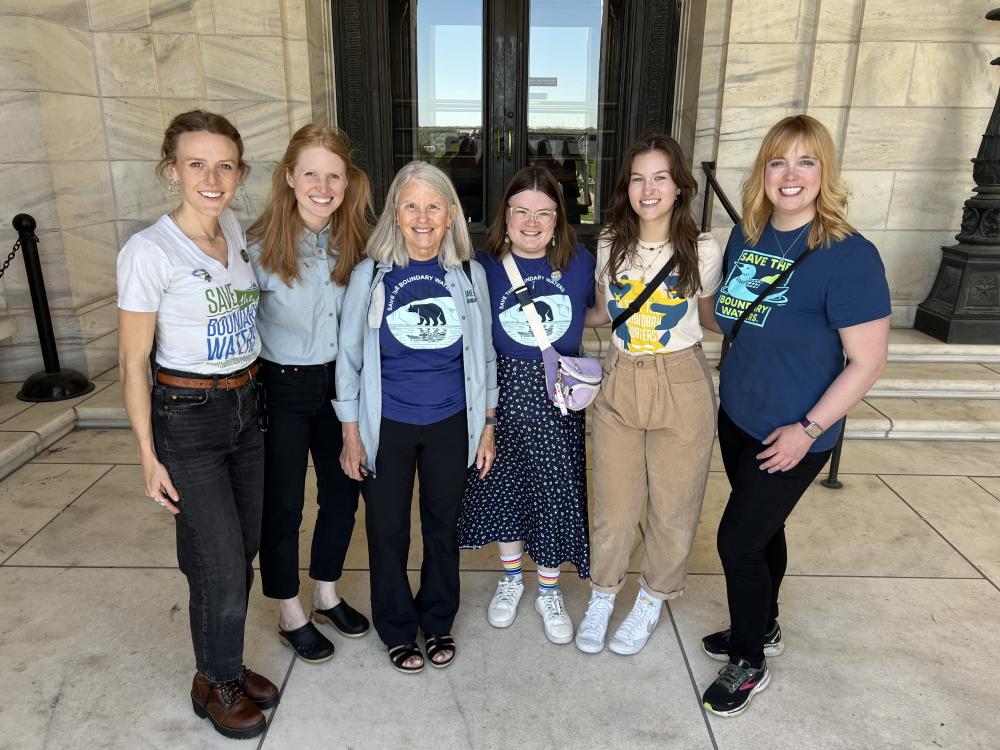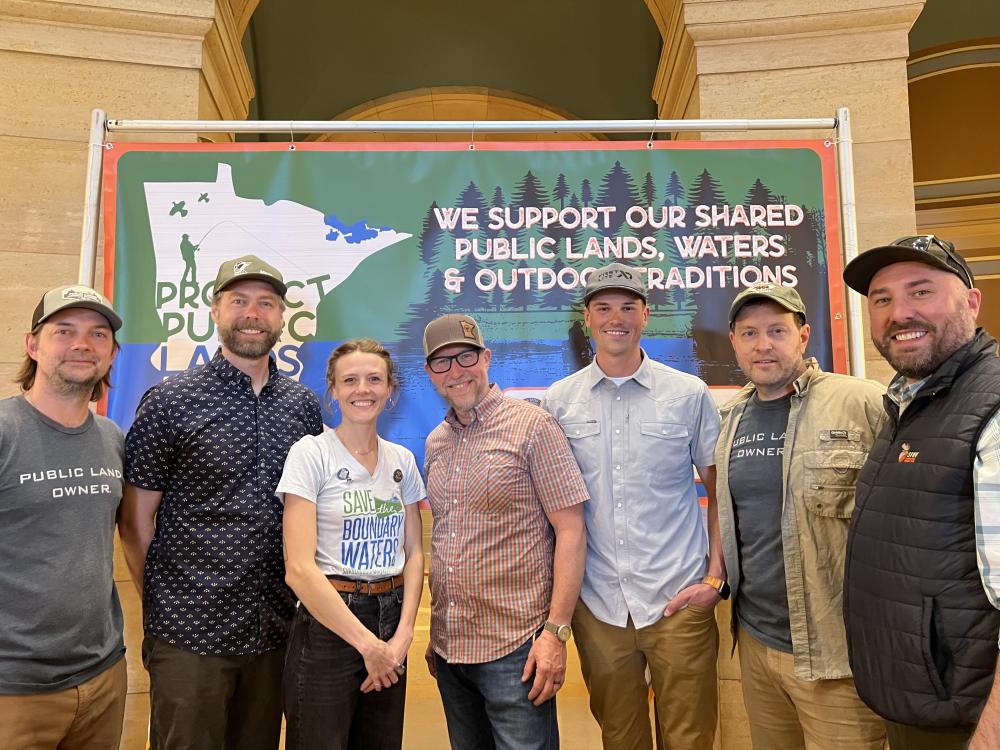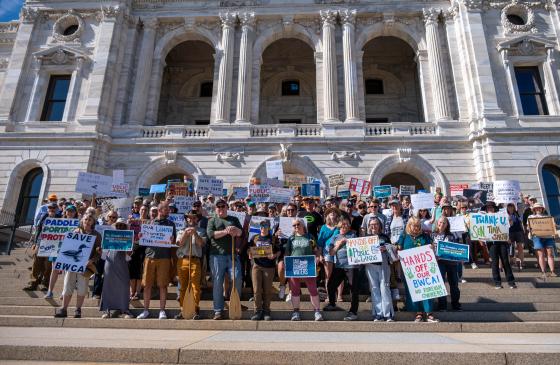Our team is working tirelessly across multiple fronts to permanently safeguard the Boundary Waters from proposed toxic copper-nickel mining. This includes being at the Minnesota State Capitol almost daily from January to May, during the legislative session. Our state work is focused on passing strong laws, defending the Boundary Waters, and ensuring state leaders stand up for this incredible place. That’s why we’re advocating for long-term, lasting protections that keep the Boundary Waters preserved for future generations.
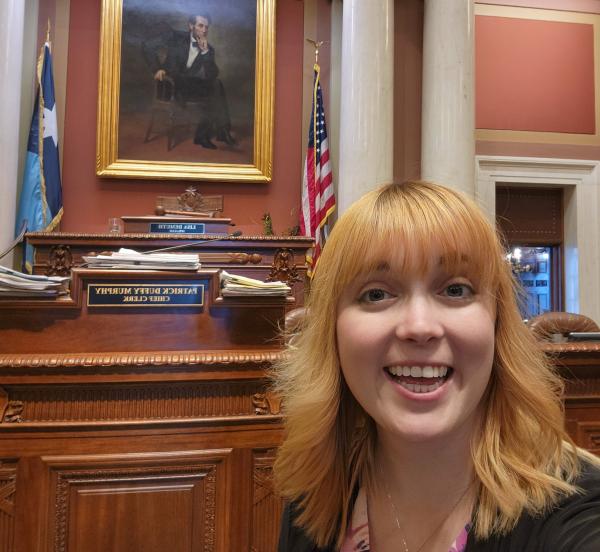
Permitting Reform
One of the bills we closely monitored from the beginning of session was permitting reform (H.F. 8 / S.F. 570). As introduced, the bill raised several serious concerns about weakening environmental protections and limiting public participation in the review of proposed projects.
1. Allowing Construction Before Full Permits Are Issued
One of the most threatening provisions of the permitting bill would have allowed companies to obtain construction permits separately from operating permits, enabling them to begin building infrastructure for a project before all required permits are in hand. This not only increases the risk of environmental harm but also undermines the integrity of the permitting process, which exists to ensure that projects are fully vetted before breaking ground. In the original bill language, there was nothing that explicitly excluded Tier 2 projects (like a non-ferrous mine) from being able to have separate construction and operating permits.
2. Restricting Public Participation
The permitting reform bill also sought to limit Minnesotans’ ability to provide input and petition proposed projects in the State — so that only those who live or own property in the county or an adjoining county of a proposed project would be able to request an environmental review. This provision bars many Minnesotans, including those who may be impacted by a project but live outside the direct area, from raising concerns, even if a project is on public lands.
Additionally, members of the Minnesota Chippewa Tribe—whose Treaty rights may be affected by certain projects—would also be excluded from providing input, even though these projects could negatively impact their rights, lands, and cultural resources.
Where We Landed
The final outcome of the permitting reform bill was a mixed bag. Thanks to strong advocacy and the leadership of key allies in the House and Senate, we successfully protected language that prohibits Tier 2 projects from being able to obtain separate construction and operating permits. In fact, no projects will be eligible to separate their permits in the final version of the bill. This is a major win, and we’re deeply grateful to leadership for holding the line and standing with us to defend our State’s environmental standards.
Unfortunately, proponents in favor of restricting Minnesotans' participation in the public review process dug their heels in. After a hard fight advocating that ALL Minnesotans have the ability to comment, the bill passed so that only residents in a project’s county or adjacent county have the ability to petition. Putting restrictions on who can sign a petition is deeply disappointing, considering that air and water pollution do not respect county lines or boundaries. It’s also concerning that Minnesotans across the State will also not have the ability to petition if a project impacts public lands.
Other Harmful State Legislation in 2025
State Gas Regulation:
This bill (H.F 2447 / S.F 2530) would have allowed commercial development of gas resources inside the Boundary Waters Canoe Area Wilderness so long as the surface of the land is not disturbed. The bill also would allow for permanent drilling just 0.25 miles from the Wilderness edge. This bill provides no ceiling on the quantity or duration of drilling and gas infrastructure development within earshot of the Boundary Waters at a time when the Minnesota DNR has admitted that the state's existing noise rules are not protective of wilderness values and character. The good news is the policy provisions of this bill did not advance this year.
Blocking the sale of State lands in the BWCA:
H.F 1425 / S.F 1702 sought to block the sale of “State School Trust Land” in the Boundary Waters to the Federal government. The sale of school trust lands would generate millions of dollars for the Permanent School Fund, which supports K-12 education in Minnesota, while also consolidating federal land ownership in the BWCA. The Minnesota DNR, the Minnesota Office of School Trust Lands, and the U.S. Forest Service are all in support of a sale. On March 11th, I testified against this bill in the MN House Environment and Natural Resources Committee. This bill did not advance past committee.
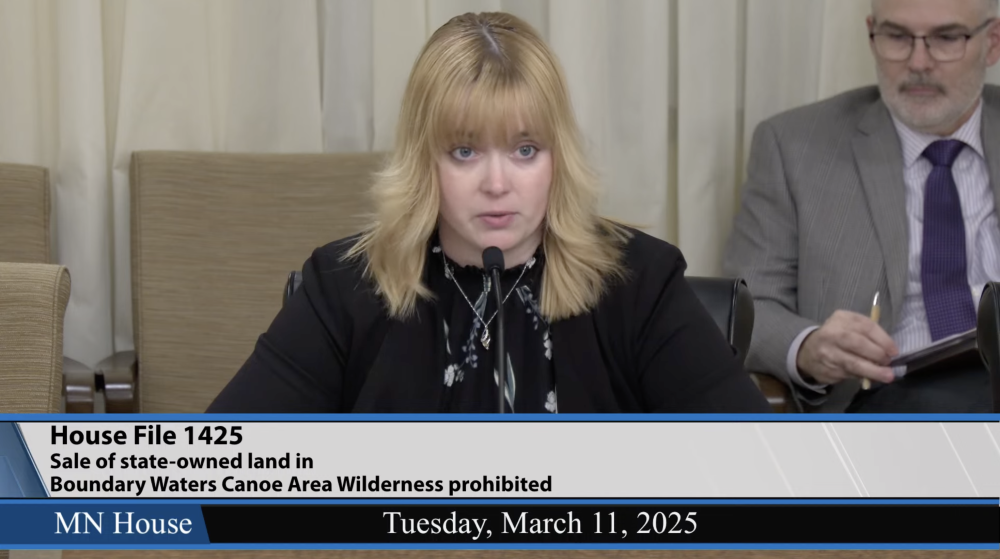
Recklessly Pairing the Extension of Unemployment Benefits with Repealing Two Key Environmental Standards
This session, there were also multiple attempts to repeal two critical environmental protections: the state's wild rice sulfate standard and the reactive mine waste rule.
These efforts were reckless politics, as proponents unnecessarily linked the rollback of these standards to an extension of much-needed unemployment insurance benefits for laid-off steelworkers up North.
- The wild rice sulfate standard is a vital protection designed to safeguard Minnesota’s wild rice waters — a crop that holds both cultural and ecological significance in our state. Sulfate pollution, primarily from mining activities, can have devastating impacts on wild rice habitats, threatening biodiversity and the health of our waters.
- Similarly, the reactive mine waste rule is an essential safeguard to prevent toxic mine waste from contaminating Minnesota’s rivers and lakes. Repealing these protections could help open the door to increased pollution and environmental degradation in some of the most pristine areas of the state, including near the Boundary Waters.
Thankfully, these attempts were not successful, and a “clean” version of the bill to extend unemployment benefits for laid-off steelworkers passed unanimously.

Looking forward:


